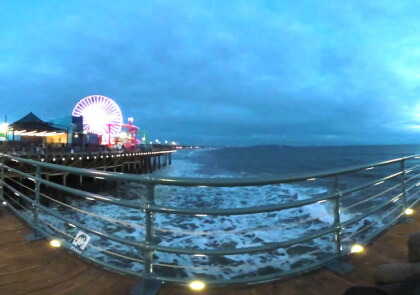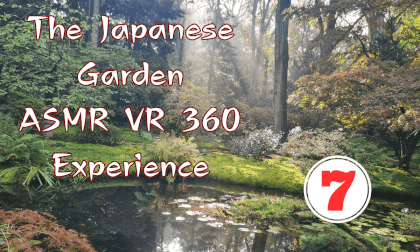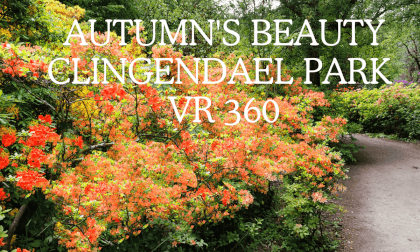
New: AI passthrough!
This amazing Deo feature uses the power of AI to turn every VR scene into AR passthrough! Now you can take characters out of VR and have them right there with you - as if they were in the same room.
Notice: AI Passthrough is presently in beta mode, and as such, users may encounter occasional service imperfections. The feature is currently exclusive to the DeoVR app, but it will soon be accessible on both browsers and mobile devices. Your feedback is highly encouraged and appreciated.
Recommended headsets:
Meta Quest 3, and Quest Pro with stereoscopic color passthrough, Pico 4 (monoscopic color passthrough).
Compatible headsets:
Quest 2, Valve Index (monoscopic black and white passthrough).
Passthrough is not compatible yet for Oculus Link cable.
Check out our complete guide to passthrough and join in the discussion at our busy forum.
1. History: The garden was created in the early 20th century by Marguérite M. Baroness van Brienen, also known as Lady Daisy. She was inspired by her travels to Japan and wanted to recreate a Japanese garden in her estate.
2. Design: The garden follows the principles of traditional Japanese garden design, featuring elements such as winding paths, serene ponds, stone lanterns, wooden bridges, and carefully pruned trees and shrubs. It aims to create a harmonious and peaceful atmosphere.
3. Seasonal Beauty: The garden is particularly stunning during the spring and autumn seasons. In spring, visitors can enjoy the blooming cherry blossoms, while in autumn, the vibrant colors of the maple trees create a breathtaking display.
4. Limited Access: Due to its delicate nature, the Japanese Garden is only open to the public for a short period each year. It is typically open for a few weeks in spring (April to June) and a few weeks in autumn (October). Entrance to the garden is free, but visitors are required to adhere to certain rules to protect the garden's integrity.
The Japanese Garden in The Hague is a hidden gem that showcases the beauty and elegance of Japanese landscaping. If you have the opportunity to visit.
























